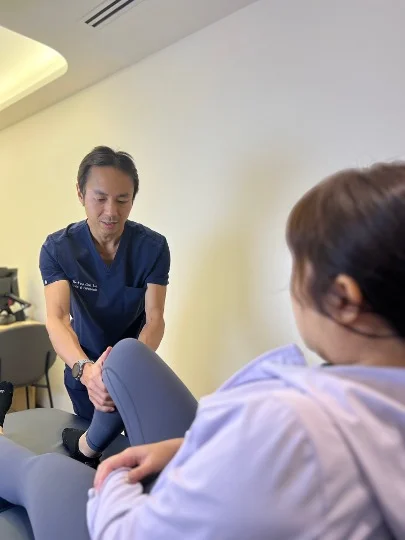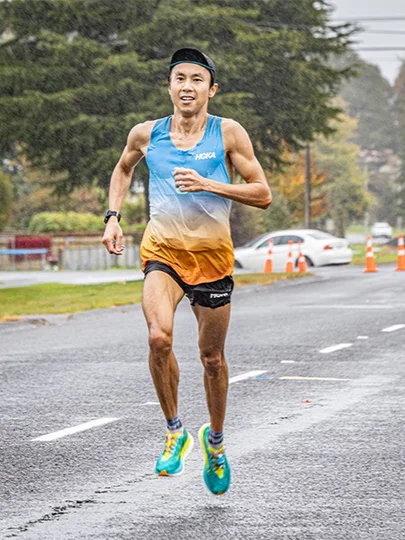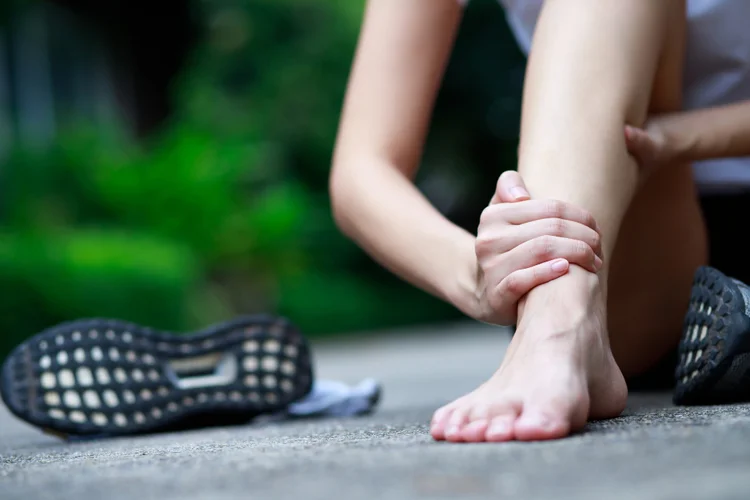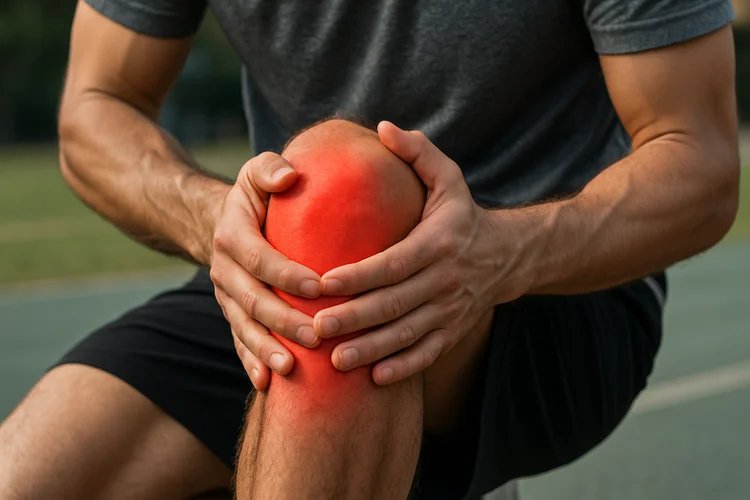Sports Medicine Singapore | Sports Injury Clinic in Singapore
MBBS (University of London) | MMed (Ortho) | FRCSEd (Ortho) | FAMS (Ortho)





At Apex Sports Clinic, we are an orthopaedic and sports injury clinic in Singapore that provides a
holistic range of services to help you recover from injuries, manage chronic conditions, and
maintain long-term joint and muscle health.
Whether you are focusing on a full recovery from a sports injury or working to return to peak
performance, we provide care aimed at improving function, building resilience, and keeping
you moving at your best.
What Is Sports Medicine?
Sports medicine is a specialised area of healthcare that
focuses on the prevention, diagnosis, treatment, and rehabilitation of injuries related to
physical activity and exercise.
It is practised by orthopaedic specialists and sports doctors who assess injuries, guide
rehabilitation, and help patients maintain mobility and function.
Sports medicine also encompasses performance optimisation, injury prevention, and overall
musculoskeletal health.
Common Sports Conditions That Sports Doctors Treat

Sports medicine specialists treat a wide range of musculoskeletal injuries and conditions affecting bones, muscles, ligaments, tendons, and joints. These include:
- Acute traumatic injuries including ankle sprains, knee ligament tears, and shoulder dislocations
- Overuse and repetitive strain injuries such as plantar fasciitis, tennis elbow, shin splints, and stress fractures
- Chronic joint and degenerative conditions such as knee or shoulder osteoarthritis, cartilage degeneration and slipped disc (herniated disc)
- Exercise-related medical issues such as exertional asthma, heat injuries, and sports-related concussions
What Treatments Are Offered in Sports Medicine?
Sports medicine treatments combine non-surgical and targeted approaches designed to reduce pain, improve function, and prevent further injury. Common treatment options include:
| Treatment | Description & Purpose |
|---|---|
| Physiotherapy and rehabilitation | Guided exercises and manual therapy to help restore movement and function after injury or surgery. |
| Exercise prescription and conditioning | Structured programmes of tailored exercises combined with load management advice to build strength, flexibility, and endurance, prevent reinjury, and support long-term performance. |
| Medications and pain management | Anti-inflammatory drugs, analgesics, or other prescribed medications to relieve symptoms and support recovery. |
| Supportive Devices | Footwear modifications, bracing, or orthotics to improve alignment, reduce joint stress, and enhance movement efficiency. |
| Shockwave therapy | A non-invasive procedure that delivers sound waves to stimulate healing in chronic tendon and soft tissue injuries. |
| Image-guided joint injections | Targeted injections, such as corticosteroids (cortisone), platelet-rich plasma (PRP), or hyaluronic acid, delivered with imaging guidance to relieve pain and improve joint function in conditions like osteoarthritis or tendon inflammation. |
In some cases, surgery may be recommended, such as hip arthroscopy and knee joint replacement, particularly when structural damage requires repair.
When Should You See a Sports Doctor?
You should see a sports medicine doctor if you have sustained an injury during exercise, training, or daily movement, or if you experience persistent pain in your muscles, joints, or tendons.

Common signs and symptoms that warrant medical attention include:
- Sudden pain, swelling, or bruising after a fall or twist
- Persistent pain in a joint, tendon, or muscle that worsens with activity
- Clicking, locking, or catching sensations in the knee or other joints
- Pain that develops gradually with repetitive activity, such as running or lifting
- Limited range of motion or stiffness in the shoulder, hip, or knee
- Recurrent back or neck pain that interferes with movement or sleep
You do not need to be an athlete to benefit from sports medicine. Treatment plans are tailored to your needs, whether your goal is to recover safely, return to daily activities, or regain mobility for sports performance.
What Can You Expect During a Consultation at Apex Sports Clinic?
Comprehensive Assessment
We review your medical history, lifestyle, and sporting activities, followed by a physical examination and imaging if required, to identify the underlying cause of your condition.
Personalised Treatment Plan
You will receive an individualised plan focused on addressing the root cause of your condition, providing clear steps to guide your recovery.
Patient-Centred Care
We prioritise non-invasive and minimally invasive treatments wherever possible, always aligning care with your comfort, recovery goals, and preferences.
Rehabilitation and Performance Support
We work with partners to provide physiotherapy, strength and conditioning, and long-term recovery programmes that help you return safely to sport and optimise performance.
How Much Do Sports Medicine Services and Treatments Cost?
At Apex Sports Clinic, our prices for sports medicine services and treatments are as follows:
| Orthopaedic Treatment & Services | Estimated Cost* |
|---|---|
| Consultation & Assessment | |
| Initial Consultation | From $200 |
| Follow-Up Consultation | From $150 |
| Second Opinion Consultation | From $200 |
| Diagnostic Services (performed by external provider) | |
| X-Ray | From $100 |
| MRI Scan | From $1000 |
| Ultrasound Imaging | From $100 |
| Sports Performance and Fitness Tests | |
| Treadmill Stress Test | From $150 |
| VO2 Max Test | From $250 |
| Lactate Threshold Test | From $200 |
| Gait Analysis | From $200 per session |
| Non-Invasive Treatments | |
| Physiotherapy | From $200 per session |
| Sports Physiotherapy | From $200 per session |
| Shockwave Therapy | From $100 per session |
| Casting | From $200 |
| Injection-Based Treatments | |
| Cortisone Injection | From $250 per injection |
| Hyaluronic Acid Injection | From $1000 per injection |
| Bursa Injection | From $250 per injection |
| Joint Aspiration (Arthrocentesis) | From $250 per injection |
| Platelet-Rich Plasma (PRP) Treatment | From $1000 per injection |
| Ultrasound-Guidance for Injections (in addition to cost of injection) | From $150 |
*Prices listed above are estimates and may vary depending on the complexity of the condition, type
of procedure, and other clinical considerations.
For treatments or services not listed above, please refer to our price guide or contact us to enquire further.
Every patient deserves a treatment plan tailored to their needs. We start with non-surgical approaches before considering more invasive interventions.
Find a Sports Injury Clinic Near Me
Apex Novena
admin@apexsportsclinic.sg
101 Irrawaddy Rd, #18-12 Royal Square Medical Centre, Singapore 329565
Nearest MRT: NS20 Novena
Apex East Coast
admin@apexsportsclinic.sg
112 E Coast Rd, #03-03/04 i12 Katong, Singapore 428802
Nearest MRT: TE26 Marine Parade
Why Do Patients Choose Apex Sports Clinic?
Sports Doctor in Singapore: Personalised & Affordable Care
Progressive Treatment Philosophy
We prioritise personalised, non-invasive solutions, progressing to specialised treatments, including surgery, only when needed for more effective and targeted care.
Holistic Patient-Centred Care
From diagnosis to rehabilitation, we provide comprehensive and seamless care for a wide range of orthopaedic conditions.
Specialist in Sports Orthopaedics & Injury Management
We combine expert injury management with a proactive approach to maintaining your body’s strength and function, so you can recover fully and perform at your peak.
Patient Journey
1 . Schedule Your Appointment

2 . Expert Diagnosis & Consultation

3 . Customised Treatment Plan

Schedule an Appointment

Our Insurance Partners






Frequently Asked Questions (FAQs)
Sports medicine doctors and orthopaedic specialists are commonly consulted for sports injuries. Sports doctors focus on diagnosis, rehabilitation, and non-surgical treatments, while orthopaedic specialists manage more complex cases, including surgical repair if required. Both work with physiotherapists and other allied health professionals to support recovery and long-term performance.
Recovery difficulty depends on the type and severity of the injury. Serious injuries such as anterior cruciate ligament (ACL) tears, Achilles tendon ruptures, and spinal injuries often involve long rehabilitation and may not restore full pre-injury function. Factors such as age, general health, and adherence to rehabilitation also influence outcomes. Consulting a sports doctor or orthopaedic specialist can help assess recovery expectations and guide treatment based on your case.
There is no single best treatment for all sports injuries, as management depends on the type and severity of the injury. Common approaches include physiotherapy, exercise rehabilitation, supportive devices, medications, and in some cases, injection-based treatments or surgery. Early assessment helps prevent complications and improves recovery outcomes. If you are experiencing an injury or persistent pain or discomfort, it is best to consult an orthopaedic specialist or sports doctor for proper diagnosis and treatment.
Five common sports injuries include ankle sprains, knee ligament injuries, muscle strains, tennis elbow, and shin splints. These injuries often result from sudden trauma, overuse, or repetitive stress on joints and soft tissues. Early evaluation supports targeted management and helps reduce the risk of chronic problems. If you experience joint instability, muscle pain, persistent elbow discomfort, or shin pain during activity, it is best to seek medical attention for proper diagnosis and treatment.
Contact sports such as rugby, football, and martial arts tend to have higher rates of severe injuries due to collisions and physical impact. Serious injuries may include ligament tears, fractures, and concussions, while catastrophic injuries, though rare, can involve the head, neck, or spine. The severity and long-term effects vary between individuals and sports.
Sports injuries can take anywhere from a few days to several months to heal, depending on the type, severity, and the individual’s overall health. Minor sprains or strains may recover quickly with rest and rehabilitation, while fractures, ligament tears, or tendon injuries often require longer recovery periods. Early assessment helps prevent complications and supports better outcomes. If you are injured, it is advisable to consult a sports doctor or orthopaedic specialist to understand your expected recovery timeline.
Non-steroidal anti-inflammatory drugs (NSAIDs), such as ibuprofen or naproxen, are commonly used to relieve pain and reduce inflammation after sports injuries. They can help manage symptoms in the short term, but prolonged use should be monitored for potential side effects on the stomach, kidneys, or heart. In some cases, topical NSAIDs or other treatments may be recommended instead. It is advisable to consult your doctor before starting or continuing any anti-inflammatory medication.
Ice is generally recommended in the first 48 hours after an acute sports injury to reduce pain and swelling, while heat may be more useful later to ease muscle stiffness and improve blood flow. The choice depends on the type and timing of the injury, as applying the wrong method may worsen symptoms. Always follow the advice of your sports doctor or physiotherapist to ensure the most appropriate approach for your recovery.
Medications commonly used for sports injuries include non-steroidal anti-inflammatory drugs (NSAIDs) to reduce pain and swelling, simple analgesics such as paracetamol, and occasionally muscle relaxants for severe spasms. In selected cases, corticosteroid or platelet-rich plasma (PRP) injections may be recommended for targeted relief. The choice depends on the nature and severity of the injury.
A sprain refers to injury of a ligament, the tissue that connects bones and stabilises joints, whereas a strain involves overstretching or tearing of muscles or tendons. Both can cause pain, swelling, and reduced function, but they affect different structures and may require slightly different approaches to treatment and rehabilitation.
Pain severity varies between individuals, but injuries such as fractures, dislocations, anterior cruciate ligament (ACL) tears, and Achilles tendon ruptures are often described as especially painful. The intensity of pain can also depend on the injury site, personal pain threshold, and whether nerves are involved. While some injuries cause sudden severe pain, others may lead to persistent discomfort that affects daily life. If you are experiencing severe or persistent pain, it is advisable to seek medical attention for proper assessment and management.

